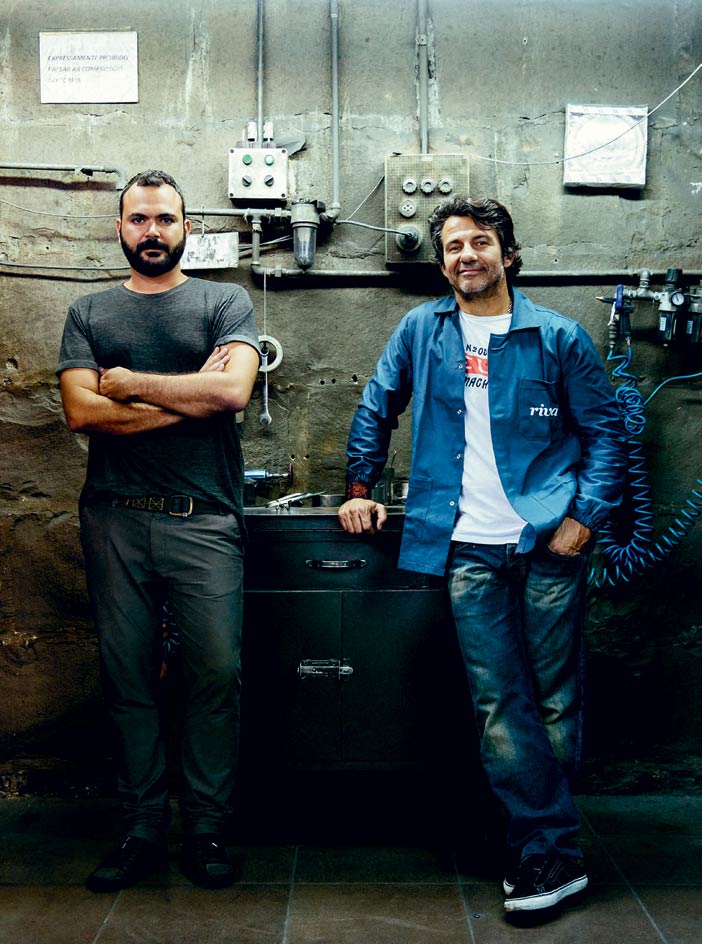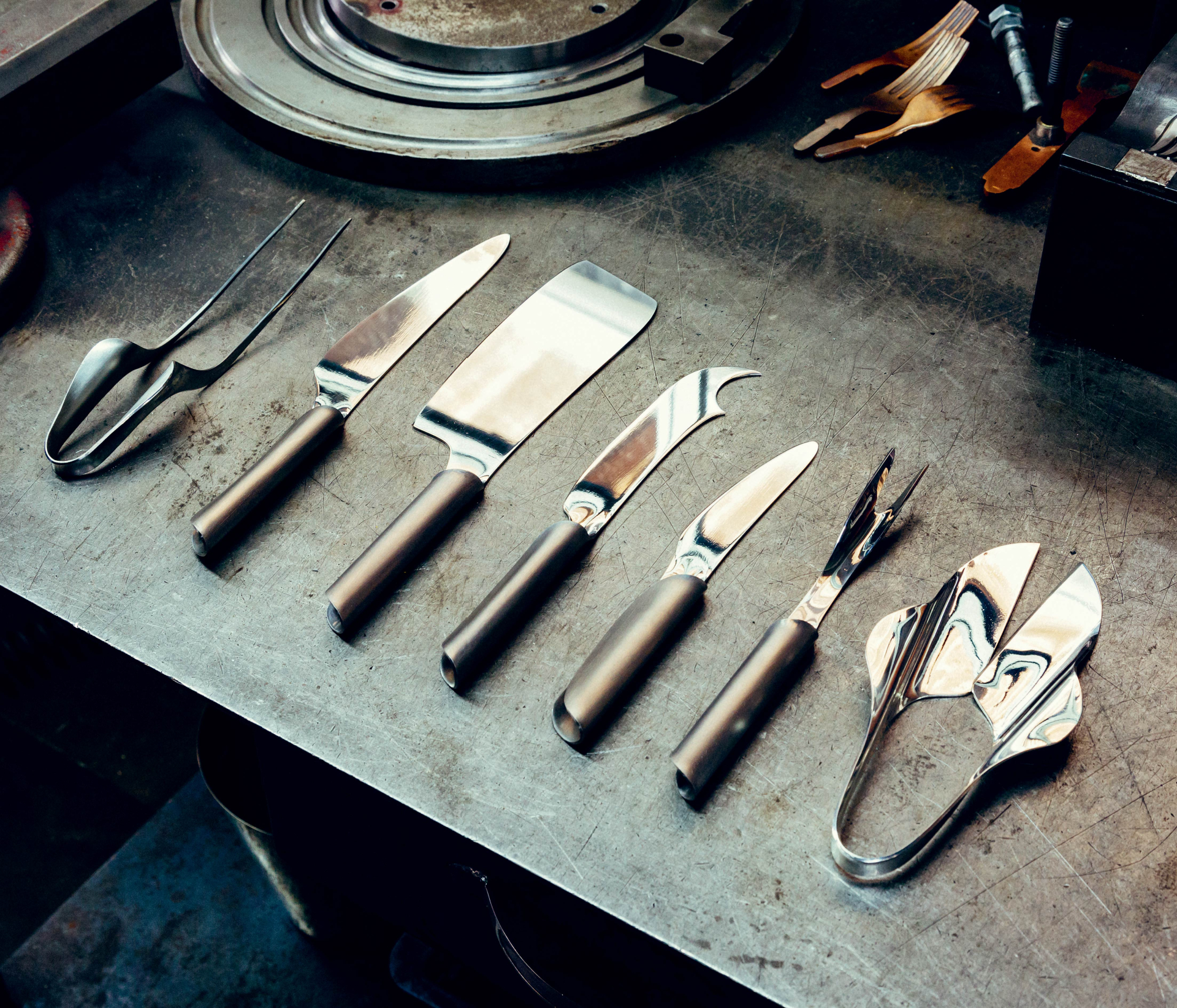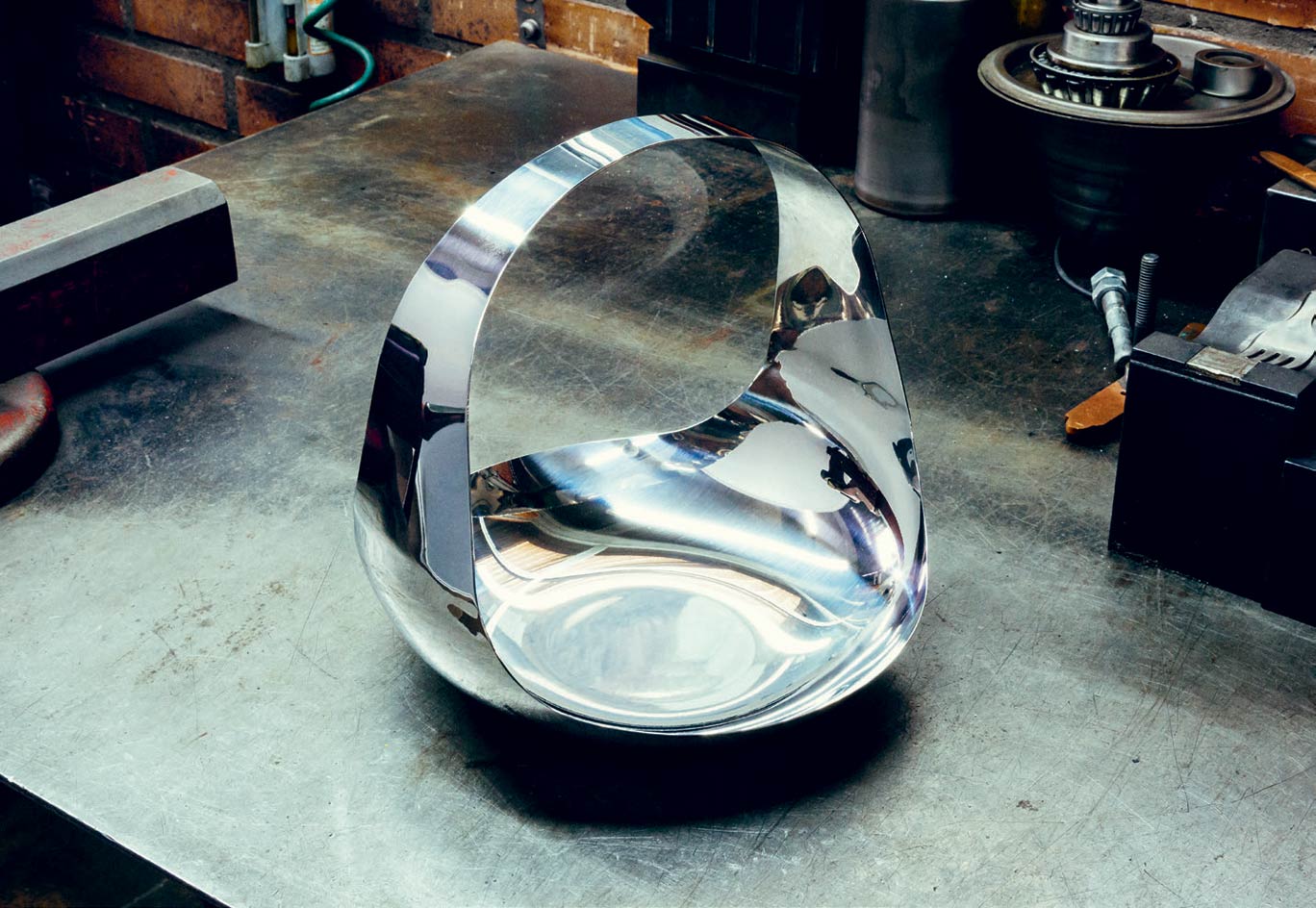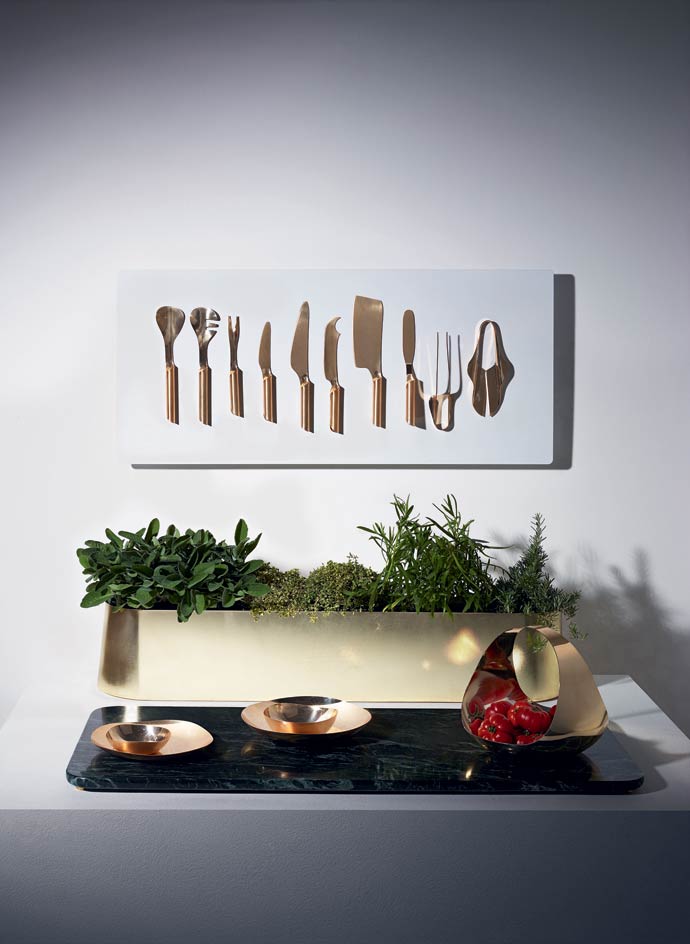Cook sharp: Handmade 2015's ‘Tuju’ chef-gardener toolkit, by Ivan Ralston, Brunno Jahara and Rubens Simões/Riva

Receive our daily digest of inspiration, escapism and design stories from around the world direct to your inbox.
You are now subscribed
Your newsletter sign-up was successful
Want to add more newsletters?

Daily (Mon-Sun)
Daily Digest
Sign up for global news and reviews, a Wallpaper* take on architecture, design, art & culture, fashion & beauty, travel, tech, watches & jewellery and more.

Monthly, coming soon
The Rundown
A design-minded take on the world of style from Wallpaper* fashion features editor Jack Moss, from global runway shows to insider news and emerging trends.

Monthly, coming soon
The Design File
A closer look at the people and places shaping design, from inspiring interiors to exceptional products, in an expert edit by Wallpaper* global design director Hugo Macdonald.
The study of classic culinary techniques may still secure you a place in some of the world’s best kitchens; but it’s knowing your perennials from your biennials that will reserve you a place in the new elite band of chef-entrepreneurs who all grow, as well as gratin, their produce.
São Paulo’s Ivan Ralston is one such chef. Last year, at the age of 29, he opened his first restaurant, Tuju, in the city’s Vila Madalena area. Having cut his culinary teeth at Maní in São Paulo before stints at Spain’s El Celler de Can Roca and Mugaritz, and Tokyo’s Ryugin, he wanted to focus on Brazilian produce – which for him meant both growing it and cooking it. He worked with architects Vapor 324 and Garupa to design not only the interior features of his dining room, but to develop vegetable gardens and greenhouses behind the kitchens, so that his sample menu might be entirely fed from on-site produce.
With this steady increase of talented cooks supplementing their kitchen skills with horticultural husbandry, we thought the time had come to expand their traditional arsenal of tools. Inspired by Ralston’s dedication to the combined arts, we introduced him to local designer Brunno Jahara, with the brief to devise a range of apparatus that fits the needs of the modern day chef-gardener. Jahara, who was educated at the University of Brasilia and the Istituto Universitario di Architettura di Venezia (which led to a role in Fabrica’s design department), now operates from his own studio in São Paulo. His work mixes organic shapes and tropical inspirations with sustainable materials. Enjoying the shared experience of having worked internationally while cherishing the produce of their home soil, the pair hit it off.
After a meeting over a tasting menu at Tuju, and a tour of the kitchen and gardens, ideas began to form. ‘It’s a complete set-up for cultivating, harvesting and preparing food,’ says Jahara. ‘This kind of project makes us think about our relationship with what we eat and how we serve food; seeing Ivan’s amazing greenhouse and understanding that daily ritual became my inspiration.’
Together they dreamt up the content of the kit, which would have everything from knives to a trug, and Jahara started to work on the designs. ‘I started thinking of forms that were very natural and ergonomic – not too technical, as kitchen tools often are,’ says Jahara. ‘I imagined very organic, fluid shapes that appear to bend in a natural way, almost as plants do as they grow.’
We found the perfect manufacturing partner in Riva, the renowned Brazilian maker of table and kitchenware, based in Rio Grande do Sul. Founded by Rubens Simões in 1988, the brand has attracted top local creatives, from Arthur Casas to Zanini de Zanine, to create lines in steel and silver.
‘Riva’s technology is precise and it has a good reputation for hand-polished steel,’ says Jahara, who spent a few days working with the skilled team of craftsmen to refine the mechanics of the pieces. The final roll call of products includes tweezers, scissors, knives, forks, spoons, plates, a marble cutting board, a steel trug, and of course, a planter in which to propagate ingredients. And to stamp the unique collection with a sense of the precious, the steel was given a gold finish.
As originally featured in the August 2015 edition of Wallpaper* (W*197)

‘This kind of project makes us think about our relationship with what we eat and how we serve food,' says Jahara

‘I started thinking of forms that were very natural and ergonomic – not too technical, as kitchen tools often are,’ says Jahara. ‘I imagined very organic, fluid shapes that appear to bend in a natural way, almost as plants do as they grow’

Final products include tweezers, scissors, knives, forks, spoons, plates, a marble cutting board, a steel trug, and a planter in which to propagate ingredients
Receive our daily digest of inspiration, escapism and design stories from around the world direct to your inbox.